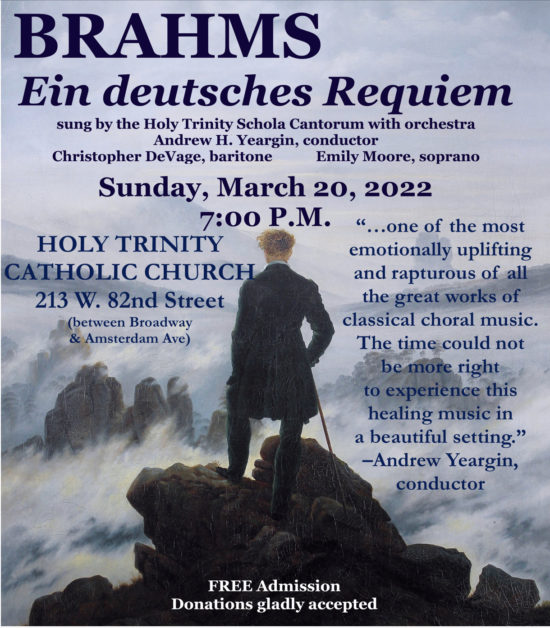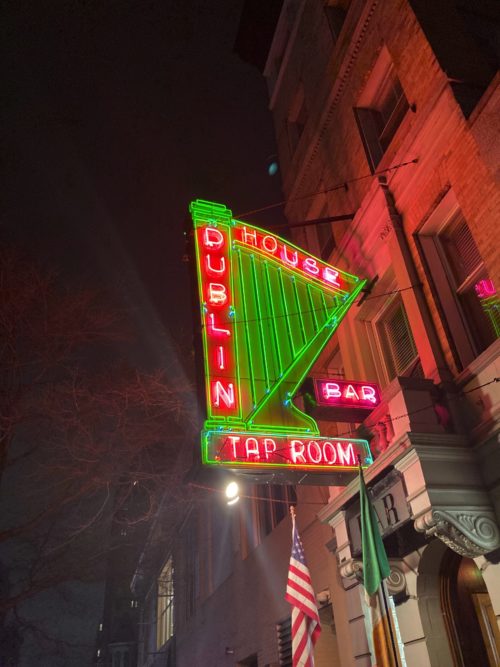My name is Andrew Yeargin…
I am the Director of Music & Organist at Holy Trinity Catholic Church on W. 82nd Street between Broadway and Amsterdam Ave. On Sunday, March 20, 2022 at 7:00 P.M., the Holy Trinity Schola Cantorum—an all-professional choir—will be presenting the German Requiem by Johannes Brahms with orchestra.
After the past two years, the time could not be more right to experience such a beautiful and healing masterpiece of music in our magnificent Byzantine church. The performance will include soloists Christopher DeVage (baritone) and Emily Moore (soprano). Admission is FREE, though donations to the music program are greatly appreciated.
The Brahms Requiem, while taking its text from scripture, is an extremely ecumenical work, which Brahms himself wanted to be called a “Human” Requiem. Unlike most Requiem Masses, which focus on the dead, Brahms’s work instead speaks to those of us who are still here. The text is devoid of any religious dogma, but filled with words of comfort and hope which speak to us all.









My wife and I would like to come,
Please set aside 2 Tickets, if that is possible.
Paul Mills
Do I need a ticket to attend? Will there be social distancing?
Enough already…if you don’t like the space, don’t go…it’s that simple. It’s far past time for the fear mongers to rule over everyone else.
It’s possible this person is at higher risk and is merely asking a question. The answer might help them make a personal decision.
Let’s be gentle with each other.
Nonsense…if that is the case, they should contact the venue. It’s not the WSR’s responsibility to have all the details about every event they publicize.
The person asked a simple question. Don’t take your bad conscience out on other people.
“the redeemed of the Lord” is devoid of any religious dogma?
I think it’s fair to call it ecumenical *for a 19th century work*. It’s also far more focused on the psychology of grief than on the fate of the deceased. For example, unlike other requiems you may be familiar with, the piece opens not with a direct address to the Christian God, but with a gentle meditation on “selig sind die da Leid tragen” (“blessed are they that mourn, for they shall find comfort”).
It is not, however, an atheist work, nor could it be mistaken for a work referring to non-Western deities, and the texts are drawn from both Old and New Testament, so clearly a Christian work. As an atheist, I find the reminder that “behold all flesh is as the grass” to be helpful, but others will take different paths.
Beautifully said, Sarah!